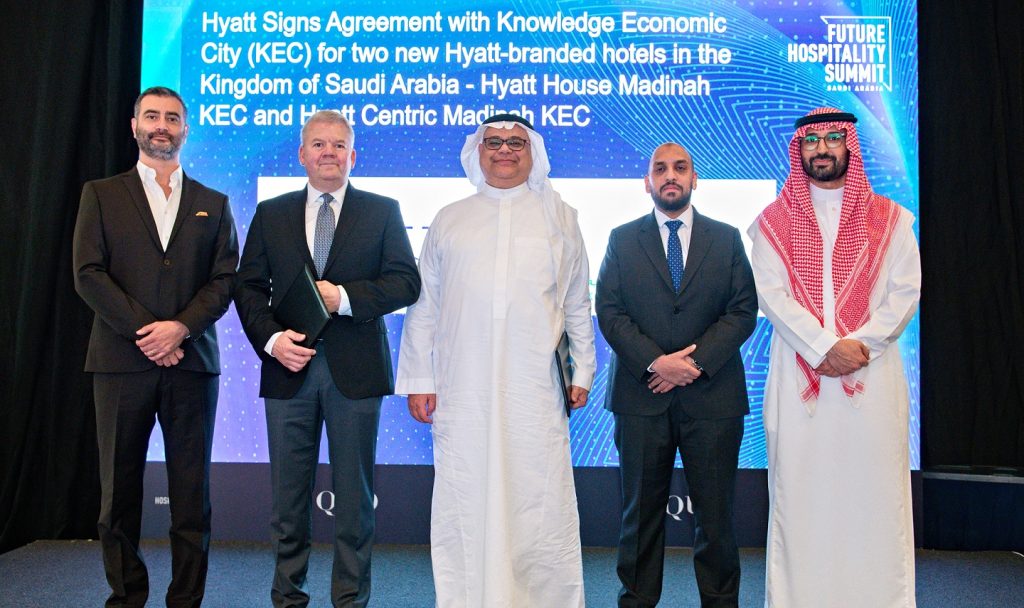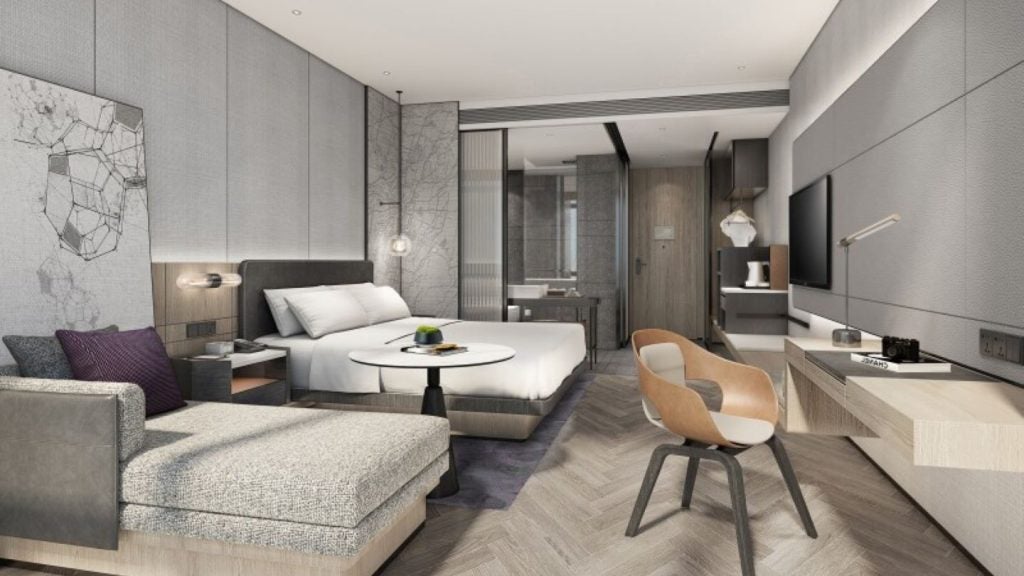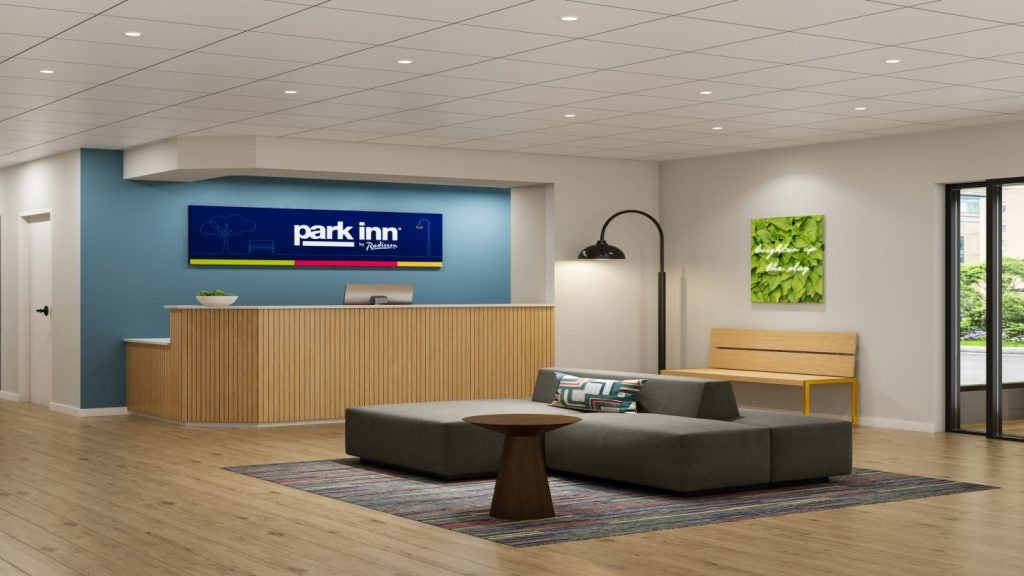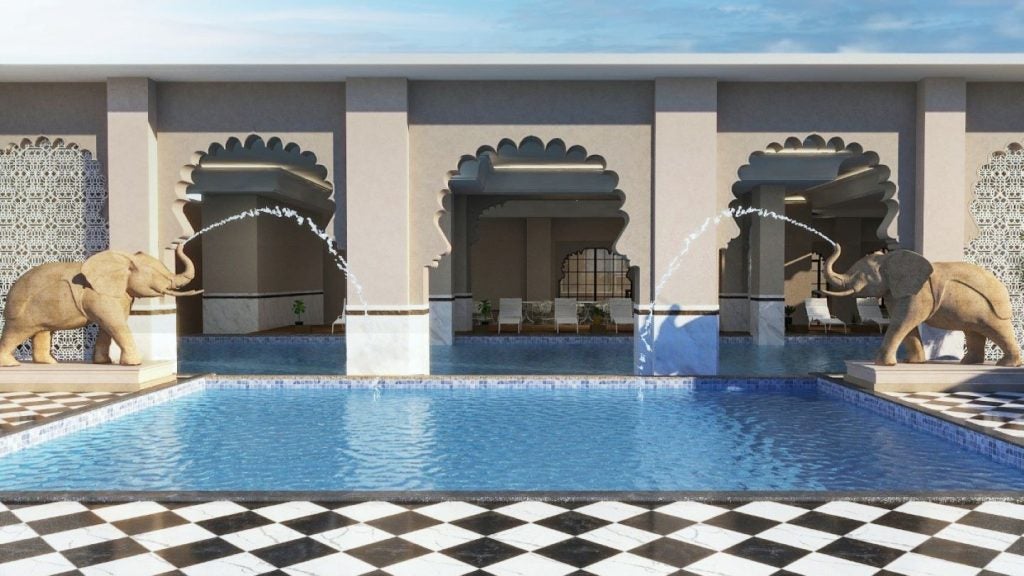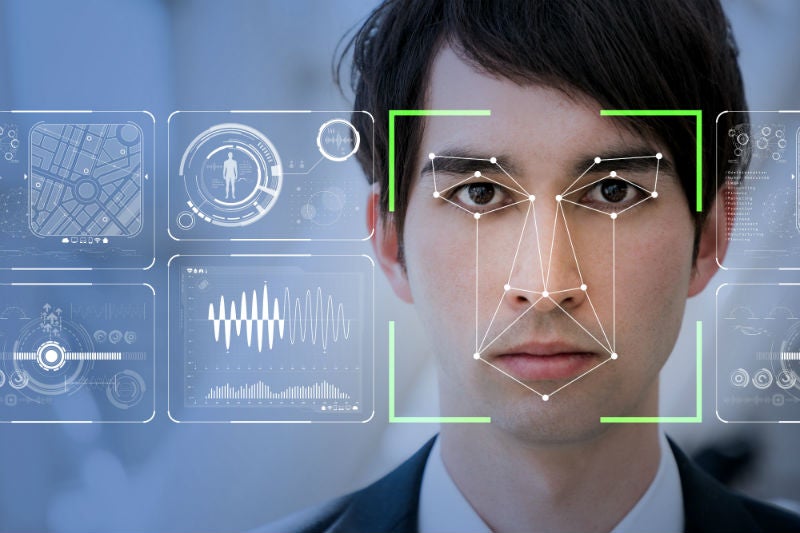
Imagine entering your stateroom aboard Dream Cruises’ Global Dream for the first time to find some of its digital components already know who you are, your likes and dislikes, and whether it was you or someone accompanying you who asked for the air conditioning to be switched on first.
Serving the Asian cruise market from 2021, the US$1.8bn vessel will carry almost 10,000 passengers across its 19 decks on any one voyage, offering so-called ‘personalised guest engagement’.
“Global Dream will be equipped with state-of-the-art digital technology such as facial and speech recognition… It will be optimally designed to meet the advanced digital requirements of the Asian cruise market,” said the company’s president Michael Goh.
It’s an alluring proposition, which will likely be attractive to the market. After all, who wants to leave the comfort of their chair (or even bed) to alter the lights? It does, however, raise one question: how will the cabin recognise you and those you’re with? The reality is that at some point personal data – your face and voice – will need to be provided to the onboard system. Although that may concern some, it’s likely once guests have enjoyed the convenience, any concerns they had will have disappeared, at least for now.
Singapore introduces facial recognition
In November 2019, a statement by the Singapore Tourism Board (STB) and Singapore Hotel Association (SHA) caused a stir. The two organisations announced that they had begun the roll out of ‘E-Visitor Authentication’ across the city-state’s hotel industry, meaning hotels can use automation and even facial recognition for check-in, speeding up the process and allowing hotel staff to interact with guests with ‘increased face-to-face engagement’ at other times during their stay.
While the announcement invited hotels to register their interest, the programme has already been trialled at three – Ascott Orchard, Swissotel the Stamford and Grand Park City Hall – with great success, according to the hotels and STB.
How well do you really know your competitors?
Access the most comprehensive Company Profiles on the market, powered by GlobalData. Save hours of research. Gain competitive edge.

Thank you!
Your download email will arrive shortly
Not ready to buy yet? Download a free sample
We are confident about the unique quality of our Company Profiles. However, we want you to make the most beneficial decision for your business, so we offer a free sample that you can download by submitting the below form
By GlobalData“To transform the hotel industry and support our hotels to be more competitive and innovative for sustainable growth, we continue to work in close collaboration with industry partners to drive enhanced guest experiences via new solutions and initiatives,” said director of hotels and manpower at STB, Tan Yen Nee.
However, it hasn’t been as warmly received by all. A major concern, for some, of the E-Visitor Authentication process is the sharing of guests’ personal data with authorities. Upon check-in via the automated kiosks, guest details will be sent to Immigration & Checkpoints Authority for verification.
It’s a move some believe is a further extension of surveillance by authorities; but this is an argument Naveen Joshi, founder and CEO of Allerin and long-time tech commentator on the hotel industry has little time for. He says this type of data sharing already goes on widely across the sector as part of industry regulations.
“Most guests are well aware that their data is being shared, without facial recognition, already. Hotels are obliged to share their IDs, CCTV feeds and so on with law enforcement,” he says. In fact, he welcomes the transparency of this new initiative, and others like it, which requires what he calls data ‘capturers’ to disclose the platforms with which they share.
His position is both clear and, some would argue, reasonable. Today, facial recognition and electronic verification systems, powered by artificial intelligence (AI), are in operation around the world and across environments; from airports to other forms of public transports, utility services to law enforcement.
For Joshi, if you’re not involved in criminal activity there is little cause for concern as to how your data is being used. He says hotels have been using guests’ personal data for years, just not facial recognition: “Most of the hotels already have my passport details and mugshot, so what are my real concerns (about using facial recognition)?” he asks.
Facial recognition will enhance the hotel experience
In fact, he believes aside from checking, upon check-in, whether a visit is legitimate and sanctioned by authorities, data will likely not be used or even viewed again.
“Authorities do not generally care until some ‘incident’ takes place or someone is on a look out notice,” he says. For him, the fact that the industry and the STB have announced the initiative is reassuring, providing transparency and openness rather than it seemingly being introduced in a more clandestine manner.
Using facial recognition in the travel and tourism sector has its perks too, as Dream Cruises’ Global Dream demonstrates.
“The biggest benefit is user experience,” Joshi says. “Your face is recognised and added to the hotel’s system as a profile. Now that your face is your ID, you can go to any area you could previously only have accessed through a card – the gym, club, rooms etc. Also, it’s not about the face but the data that’s attached to it – your meals, room, floor preferences and so on.”
In 2018, Marriot International announced it had been working with Chinese conglomerate Alibaba Group to introduce facial recognition check-ins across part of its China estate. Working in much the same way the systems in Singapore, guests can check-in without the need for any human interaction. The following year Alibaba revealed its 290-room tech-laden Hangzhou hotel boasting the very latest in digital technology in the hotel environment – from AI to robotics, even lifts that recognise guests and deliver them directly to their floor.
Joshi believes such hotels are a glimpse into the future. “I foresee a seamless experience for customers, without having to interact with hotel management. For example, once proper regulations are in place, AI driven systems can even capture the temperature of air conditioning at which I feel most comfortable. This will allow hotels to pre-set the room atmosphere as per my preferences,” he says.
However, much like the Singapore announcement, Alibaba’s offering was met with both excitement and a dash of apprehension, with some branding it ‘creepy’. Joshi believes there is no need to worry, at least no more than before: “We need to understand the fact that such new systems are just a different way of capturing the ‘sensitive’ data.”
As with many other sectors, technology will play an increasing role in the day-to-day running of a hotel and its guests’ experiences; before, during and after their stay. But Joshi cautions the need for transparency, essential in ensuring ‘creepy’ accusations of hotel data collection practices and their use of technology remains just that, accusations based on perception rather than fact. Ensuring guests know what they can expect and being open about how it happens is critical; that is the next challenge the sector faces.



